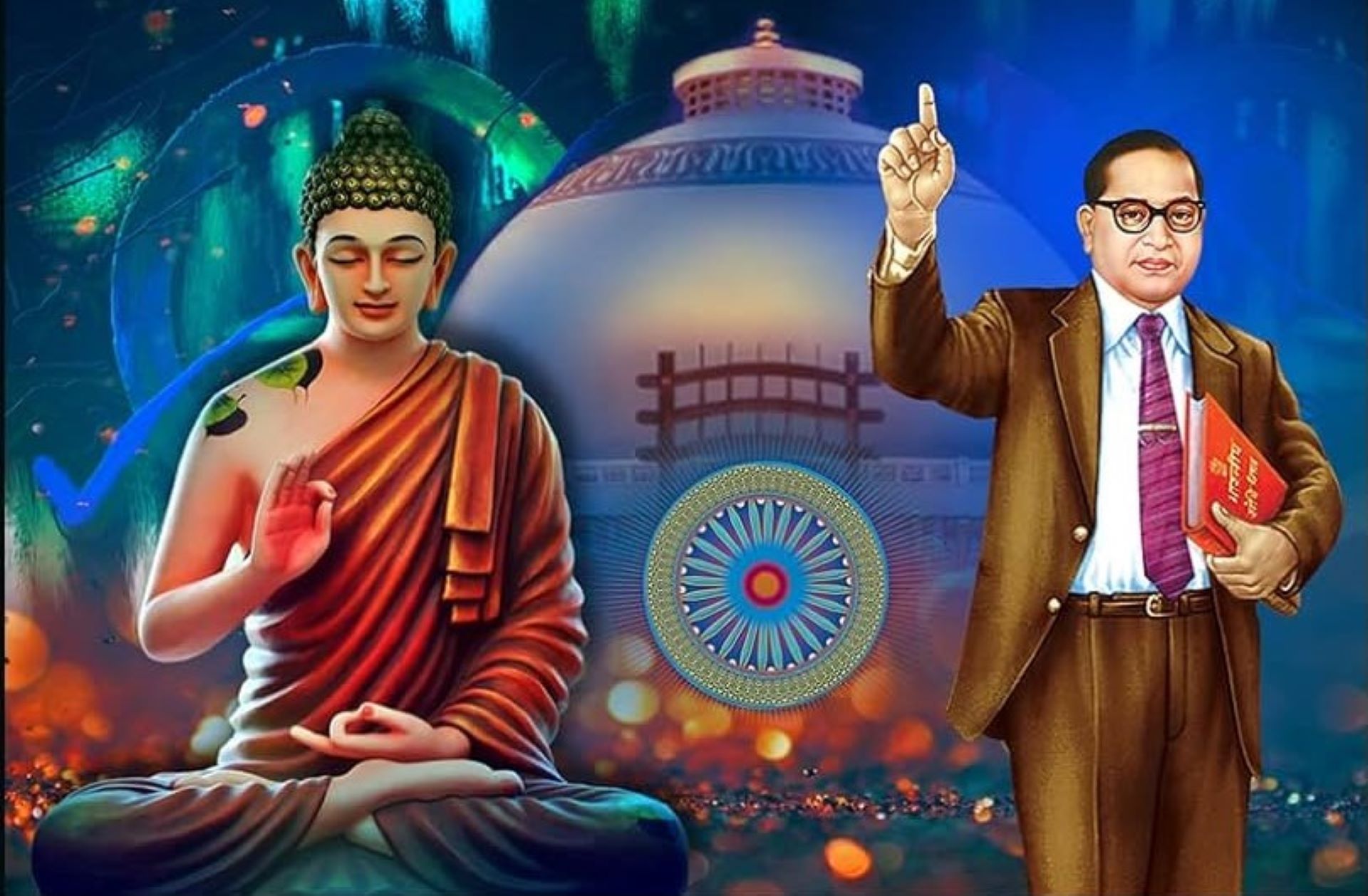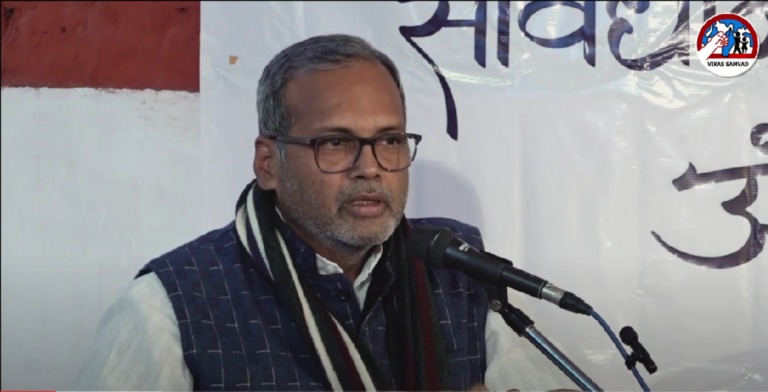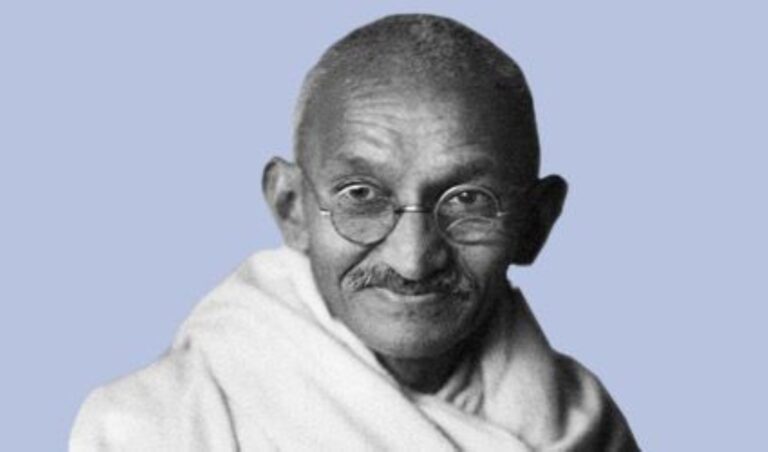बौद्ध धर्म की दृष्टि से संवैधानिक मूल्यों की समझ
बाबा साहेब अम्बेडकर संवैधानिक मूल्यों के माध्यम से एक सामंजस्यपूर्ण भारतीय राष्ट्र की स्थापना करना चाहते थे। उन्हें अहसास था कि यदि समाज के अंतर्निहित विरोधाभासों से प्रभावी ढंग से नहीं निपटा गया तो संविधान के उच्च आदर्श अधूरे रह जाएंगे। यहीं पर बुद्ध की शिक्षाएं भारतीय समाज में अंतर्निहित विरोधाभासों का समाधान पाने के लिए एक मजबूत संदर्भ बिंदु बन जाती हैं।


गुरु शरण सचदेव
सामाजिक मुद्दों के अध्येता
भारतीय संविधान एक अद्भुत दस्तावेज है। संविधान की उद्देशिका में समता, समानता, स्वतंत्रता, बंधुत्व, लोकतंत्र और शांतिपूर्ण सहअस्तित्व जैसे मूल्य शामिल हैं। भारतीय संविधान को बौद्ध धर्म के नज़रिये से देखना एक दिलचस्प पाठ उत्पन्न करता है। हम सभी जानते हैं कि बौद्ध धर्म भी अहिंसा, समानुभूति, बंधुत्व-मैत्रीभाव और शांतिपूर्ण सहअस्तित्व की वकालत करता है। जब हम बौद्ध धर्म के नजरिये से संविधान का पाठ करते हैं तो ऐसे तमाम सबक सामने आते हैं जो एक समाज के रूप में भारत को बेहतर और संभावनाशील बनाते हैं।
बौद्ध धर्म के मूल्यों में मैत्री, करुणा और शील महत्वपूर्ण हैं। इसके समांतर भारतीय संविधान अपनी उद्देशिका में जिन मूल्यों की बात करता है उनमें बंधुता का मूल्य सबसे प्रखर है। यह एक खास जीवन मूल्य है। यह मैत्री, करुणा और शील जैसे बौद्ध दर्शन के मूल्यों का एक मिश्रण है। बुद्ध कहते हैं कि ‘करुणा’ का अर्थ जहां मानव मात्र से प्रेम करना है, वहीं ‘मैत्री’ का अर्थ है सभी प्राणियों से प्रेम करना। यह बंधुता की ओर ले जाने वाला मार्ग है। प्रकृति ने मानवमात्र में भेद नहीं किया है। इंसानों के बीच आपसी भेदभाव कृत्रिम है। बंधुता एक ऐसा मूल्य है जिसका विकास इस अंतर को दूर कर सकता है। यही वजह है कि भारतीय संविधान बंधुता पर इतना जोर देता है। यह एक ऐसा मूल्य है जो अन्य मूल्यों की प्राप्ति को आसान बनाता है।
इस अंतर्संबंध पर विस्तार से विचार करता यह आलेख:
Looking at the Values of Indian Constitution from the Lens of Buddhism
The Indian Constitution is a secular document that enshrines the principles of liberty, equality, fraternity, peaceful coexistence, democracy, and respect for nature and all living beings. On the other hand, Buddhism is a religion that originated in India and lays emphasis on the significance of compassion, non-violence, and the pursuit of enlightenment. This essay seeks to take an insight into the relative principles and values. Evidently, parallels are perceived between the emphasis on non-violence and compassion in Buddhism and the Indian Constitution’s focus on peaceful existence and respect for all beings. Likewise, the pursuit of enlightenment is apparently analogous to the Indian Constitution’s thrust on liberty and equality. Whilst the broad generalizations pertaining to the similarities between the tenets of Buddhism and those of the Indian Constitution are indicative in nature, the insightful multifaceted learnings may have huge potential in securing sustained social and human wellbeing, both for India as well as the world at large.
What is Dhamma?
Unlike other religions where the founders have sought to claim divinity for themselves and their revelation and/or salvation, Buddha believed that the principle must live by itself and not by the authority of man. Dhamma, Buddha’s religion is not a revelation. He looked at his religion as a discovery. He sought to relate the discovery as the result of inquiry and investigation into the conditions of human life and gaining an insight into the working of human instincts with which the man is born, the way these are moulded over time resulting in the occurrence of dispositions – affecting him and those around him. He called upon the people to become well-versed in the practice right behavior. “When you hear a sound with the ear, or smell a scent with the nose, taste a taste with the tongue, or with body touch things tangible, and when with mind you are conscious of a thing, be not charmed with its general appearance or its details”, Buddha states. The essence is on being possessed with mindfulness and self-control.
To maintain purity of life, to reach perfection in life, to give up craving, to believe that all compound things are impermanent, live in Nibbana (exercising enough control over passions so as to enable one to walk on the path of righteousness) and to believe that Karma (the duty) is the instrument of moral order is DHAMMA. The purity of life is further manifested in purity of body (abstaining from taking life, from sinful living, from stealing. It also reflects in purity of speech – staying away from falsehood. Likewise, the purity of mind has to do with being aware of covetous or malevolent of heart. Abandoning the malevolence recurring not in future forms the practice of securing and sustaining purity of mind.
What is Saddhamma?
Cleansing the mind of its impurities and making the world a kingdom of righteousness comprise the functions of Saddhamma. Dhamma is Saddhamma when it makes learning open to all, it teaches that merely learning is not enough (so as to avoid sophistry) and that when it teaches that what is needed is Pradanya (insight). Buddha also draws attention to the fact that for Dhamma to be Saddhamma, it must promote Maitri (fellowship) from the perspective of ‘Sheel’ (moral grace) alongside Karuna (compassion). He calls for the preponderance of Maitri over and above Karuna. Buddha further calls for the need to pull down all social barriers – breaking down the barriers between man and man, teaching that ‘worth’ is the measure of man and not the ‘birth’ and that Dhamma to be Saddhamma must promote equality between man and man.
What is the Purpose of Religion?
He did not tell people that their aim in life should be to reach some imaginary heaven. The kingdom of righteousness lies on earth and is to be reached by man by righteous conduct. What he did was to tell people that to remove their misery each one must learn to be righteous in his conduct in relation to others and thereby make the earth the kingdom of righteousness. He affirmed that man’s misery is the result of man’s inequity to man. That is why he said that religion must not only preach but must inculcate upon the mind of man the supreme necessity for being righteous in his conduct. For the purpose of inculcating righteousness religion, he said, had certain other functions to undertake:
1. Religion must teach man to know what is right and to follow what is right.
2. Religion must teach man to know what is wrong and not to follow what is wrong.
Besides these purposes of religion, he emphasised two other purposes which he regarded as of supreme importance – The first is training of man’s instincts and dispositions as distinguished from offering prayers or performing observances or doing sacrifices. A good disposition is the only permanent foundation of and guarantee of permanent goodness. The second thing to which he gave great importance is courage to stand by what is right even if one is alone. He makes the point through a series of statements:
* “You are to expunge by resolving that, though others may be harmful, you will be harmless.
* That though others may kill, you will never kill.
* That though others may steal, you will not.
* That though others may not lead the higher life, you will.
* That though others may lie, vilify, denounce, or babble, you will not.
* That though others may be avaricious, you will covet not.
* That though others may be malignant, you will not be malignant. That though others may be malignant, you will not be malignant.
* That though others may be given over to wrong views, wrong aims, wrong speech, wrong actions, and wrong concentration, you must follow the right outlook, right aims, right speech, right actions, right mode of livelihood, right effort, right mindfulness and right concentration.
* That though others are wrong about the truth and wrong about Deliverance, you will be right about truth and right about Deliverance.
* That though others may be possessed by indolence and listlessness, you will free yourselves therefrom.
* That though others may be puffed up. you will be humble-minded.
* That though others may be perplexed by doubts, you will be free from them.
* That though others may harbour wrath, malevolence, envy, jealousy, niggardliness, avarice, hypocrisy, deceit, imperviousness, arrogance, forwardness, association with bad friends, slackness, unbelief, shamelessness, unscrupulousness, lack of instruction, inertness, bewilderment, and unwisdom, you will be the reverse of all these things.
* Buddha says that it is the development of the will which is so efficacious for right states of consciousness, not to speak of act and speech.
Dhamma to be Saddhamma Must Promote Maitri
Just as the earth does not feel hurt and does not resent, just as the air does not lend to any action against it, just as the Ganges water goes on flowing without being disturbed by the fire so also you Bhikkus must bear all insults and injustices inflicted on you and continue to bear Maitri towards your offenders. Maitri must flow and flow for ever. Let it be your sacred obligation to keep your mind as firm as the earth, as clean as the air and as deep as the Ganges. If you do so your Maitri will not be easily disturbed, by an act however unpleasant. For all who do injury will soon be tired out. Let the ambit of your Maitri be as boundless as the world and let your thought be vast and beyond measure in which no hatred is thought of. According to Buddha’s Dhamma, it is not enough to practise Karuna. It is necessary to practise Maitri. Morality is Dhamma and Dhamma is Morality. Mere Morality is not Enough. It must be Sacred and Universal.
Summarising the Values Espoused by Buddhism
+ The premise of Buddhism rests on the belief that it is not a revelation. Rather, it is an inquest into the conditions of human life and gaining an insight into the working of human instincts and that people ought to become versed in the practice right behavior. The essence is on being possessed with mindfulness and self-control.
+ Cleansing the mind of its impurities and making the world a kingdom of righteousness comprise the functions of Saddhamma.
+ Buddha also draws attention to the fact that for Dhamma to be Saddhamma, it must promote Maitri (fellowship) from the perspective of ‘Sheel’ (moral grace) alongside Karuna (compassion). He calls for the preponderance of Maitri over and above Karuna.
+ All social barriers must be broken down. Breaking down the barriers between man and man, teaching that ‘worth’ is the measure of man and not the ‘birth’ and that Dhamma to be Saddhamma must promote equality between man and man.
+ Mere Morality is not Enough. It must be Sacred and Universal.
Values Enshrined in the Indian Constitution
The longest written Constitution in the world, the Indian Constitution lays down the basic structure and the framework of India’s polity. It is built on the foundations of certain fundamental values that have been embedded in it by the makers of the Constitution to ensure that there should be fairness and justice for every citizen of India. The inclusion of the Fundamental Rights in the Constitution seeks to further this thought. Its role is to provide fundamental guarantees and freedoms for every individual or community to live with dignity. It seeks to reinforce the values which the Indian society has upheld for centuries. Dr B R Ambedkar said, “Constitution is not a mere lawyers’ document. It is a vehicle of life, and its spirit is always the spirit of age”.
Nehru had said, “We have to build the noble mansion of free India where ‘ALL’ her children may dwell”, and this mansion needs to be built by its dwellers, all of them, and all of us, and only then will we be united and free and equal in the true sense.”
The Preamble to the Constitution of India states, “We, the people of India having solemnly resolved to constitute India into a Sovereign, Socialistic, Secular, Democratic, Republic and to secure all its citizens: Justice, social, economic and political; Liberty, of thought, expression belief, faith and worship; Equality, of status and of opportunity; and to promote among them all; Fraternity, assuring the dignity of the individual and the unity and integrity of the Nation; in our Constituent Assembly this twenty-sixth day of November, 1949, do hereby adopt, enact and give to ourselves this Constitution.” Thus, our Constitution laid down that in the eyes of law everyone should have equal status, to no one justice be denied, everyone should have liberty of thought and expression, and to practice his own faith and belief, and the dignity of each individual should be ensured.
The basic values enshrined in the Constitution are Democracy, Socialism, and Secularism which emphasize the following principles:
- Democratic principles such as freedom, equality, tolerance, readiness to see the other’s point of view, willingness to give and take, ability to adjust in and work with the groups.
- Socialist principles such as respect for and commitment to equality in status and opportunity, maximizing production and wealthy and equitable distribution of wealth: and
- Secular principles such as respect for all religions, freedom of worship, and readiness to see and manage civic affairs without reference to religion.
Baba Saheb Ambedkar wanted to establish a harmonized Indian nation through the constitutional values, because he could realize that the lofty ideals of the Constitution would remain unfulfilled if the inherent contradictions of the society are not effectively addressed. It is here that the teachings of Buddha become a strong point of reference for addressing the inherent contradictions in the Indian society.






